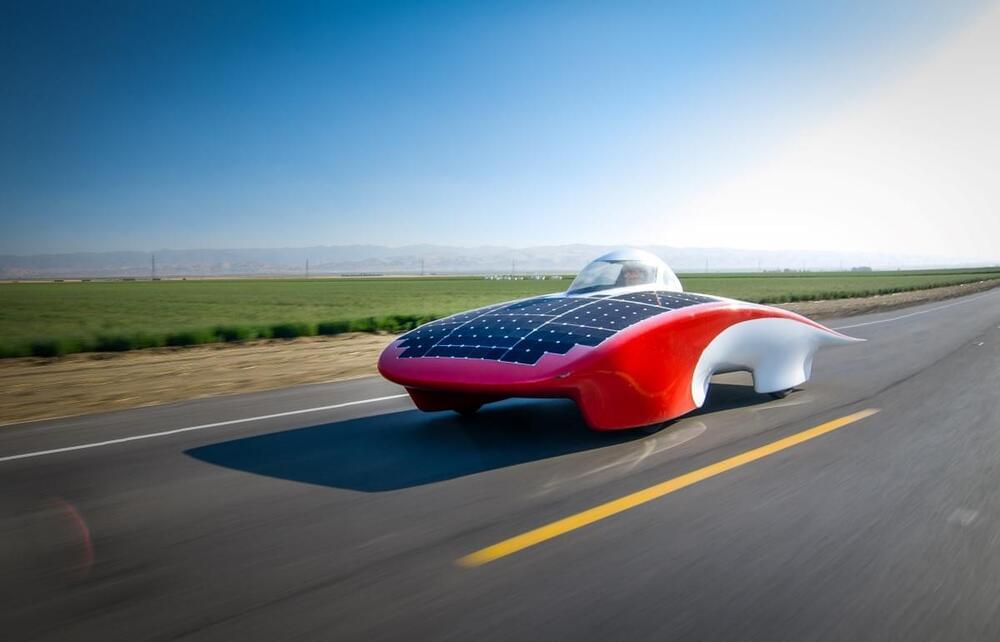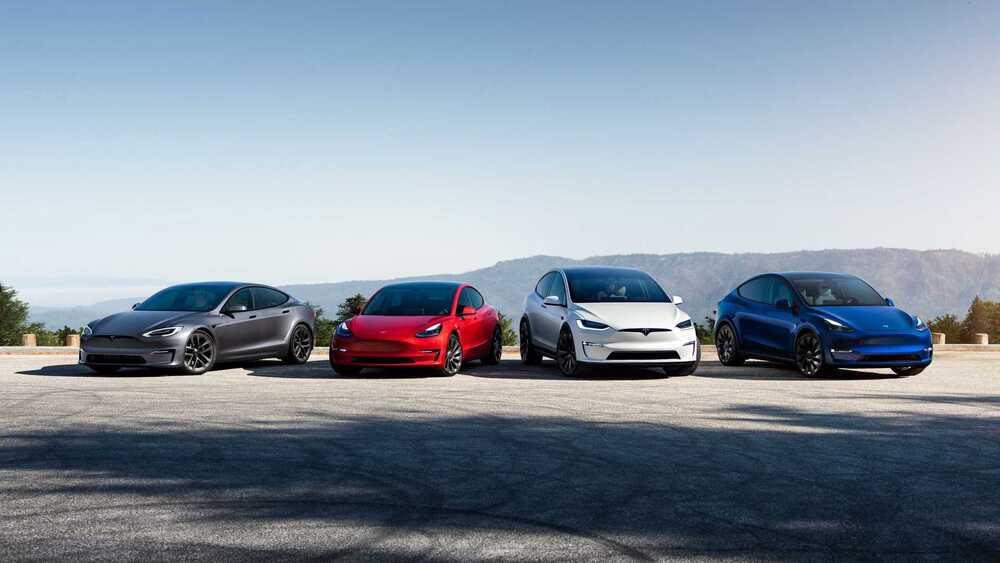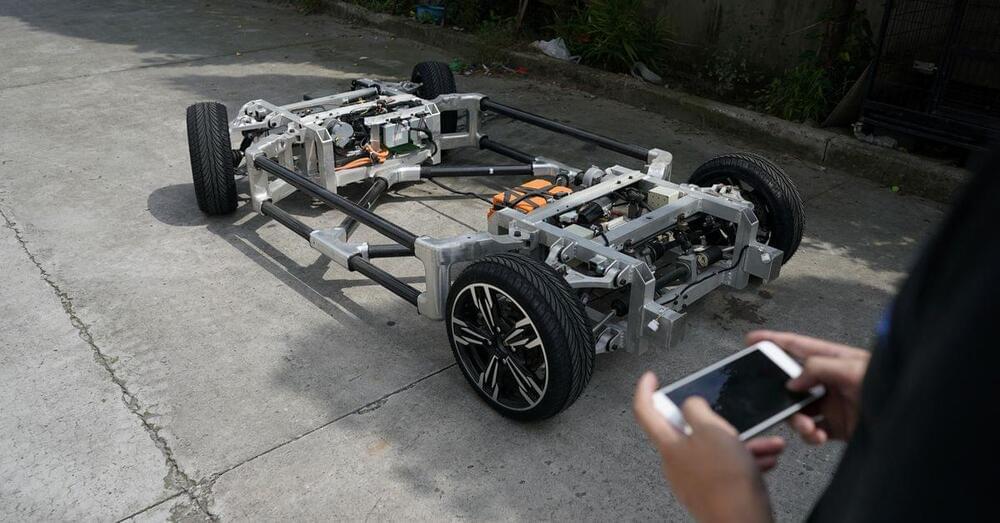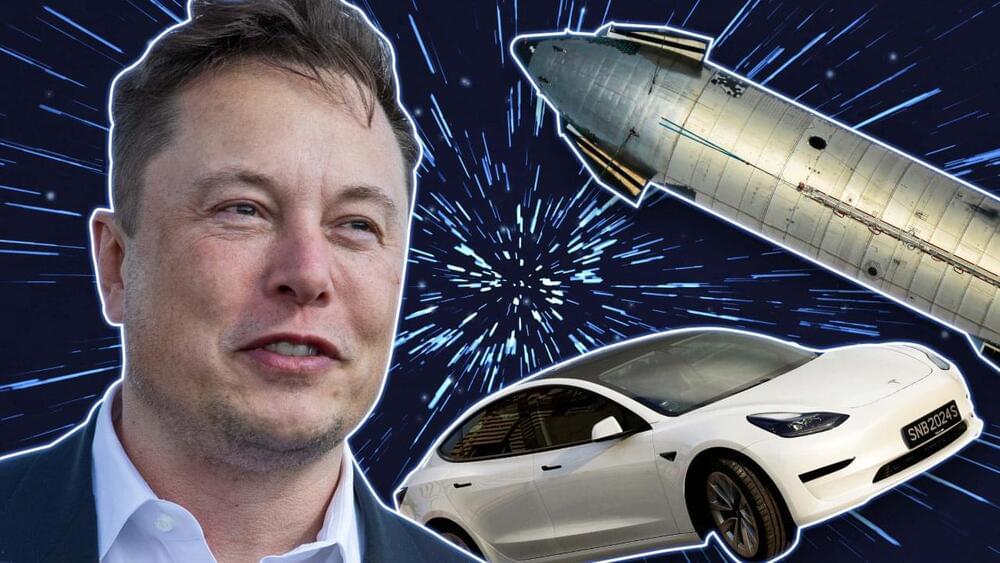With the world turning to electric vehicles and other battery-powered machines, a strong supply and demand gap is expected with lithium in the coming years. A new solar generator using sodium-ion batteries might just be the solution we need.
Category: sustainability – Page 396


DBPOWER’s portable power station has 18W USB-C/250W AC at $135, more in New Green Deals
If you’re wanting to be prepared for any situation that arises, having a portable power station in an emergency kit is a solid choice all around. The DBPOWER model on sale today offers a few crucial features to have on hand in an emergency. The 250W AC plugs can power small appliances and other crucial devices if the power goes out, and there are two USB-A and an 18W Type-C port in addition to an LED light and the ability to recharge via solar panels or your car. It’s a solid package all around for its sale price of $135, making now a great time to pick it up. You’ll also find discounts on electric lawn mowers and much more below, as well. We also have a wide selection of Tesla, Greenworks, and other e-bike discounts in today’s New Green Deals, so you won’t want to miss that either.
Head below for other New Green Deals that we’ve found today, more on why going electric for your yard tools like the mower on sale is important, and of course Electrek’s best EV buying and leasing deals. Also, check out the new Electrek Tesla Shop for the best deals on Tesla accessories.
Natrogix (96% positive lifetime feedback) via Amazon is offering the DBPOWER 250Wh Portable Power Station for $134.99 shipped once you clip the on-page coupon. For comparison, you’re saving $45 here and scoring one of the best prices of the year here. This portable power station delivers an AC wall outlet with 250W of power available to run things like small appliances, TVs, coffee makers, CPAP machines, and more. On top of that, there are two USB-A ports with 2A/1A outputs, an 18W Type-C output, and more. This portable power station also delivers three charging methods that range from a standard 110V socket to a car 12V/24V adapter or even solar panels. You’ll find a built-in LED flashlight that features three modes as well allowing your new portable battery to be very multi-functional.

The curious story of Elon Musk’s Tesla stock sales and SpaceX’s fundraising
It looks like Elon is putting more of his money into SpaceX. This makes sense as he has tons of money and SpaceX seems to have more growth potential than Tesla because his Starlink and Starship will both be very hard for other companies to compete against. (Just the amount of capital it would take to make competing products is staggering.)
I’m not saying that Tesla won’t be worth $10 trillion one day, I’m just saying SpaceX has more growth potential. Elon seems to agree.
What’s Elon Musk doing with the billions he’s collected in the past two months from selling shares in Tesla?
It seems possible, maybe even likely, that he’s put at least some of the money into SpaceX, the other company of which he is CEO and primary shareholder.
Most of the proceeds from his $16.4 billion in Tesla stock sales since November 8 will go to pay an estimated $11 billion federal tax bill, leaving him with more than $5 billion to do whatever he sees fit.


Here’s How Long You Will Wait For A New Tesla In 2022 In The US
We have just checked the Tesla estimated delivery times (for new orders) of all four electric car models available in the U.S.
There are some interesting findings, as the hectic extension of delivery times has slowed down, and in some cases, even stopped or reversed. The prices have also remained unchanged since November 12.
Let’s start with the Model 3. The queue for the entry-level RWD version with an LFP battery appears to decrease as the estimated delivery time is the same as over one and a half months ago (June or October, depending on the wheel option). The Long Range AWD and Performance versions moved up a bit — to March and February. As we can see, the higher price/higher margin versions are prioritized (it will be common for all models).
Huawei FusionSolar 2021: All-scenario PV & Storage Solution
PV Guided Tours 2021: Huawei presents its All-scenario PV & Storage Solution for Europe. It enables high-efficient generation, use and storage of solar power in various applications, such as large-scale PV power plants, commercial, residential and stand-alone solutions. Our video shows all the innovations.


China to cut new energy vehicle subsidies
China has cheap labour and huge market so still EV companies will invest in China.
BEIJING, Jan 1 (Reuters) — China will cut subsidies on new energy vehicles (NEVs), such as electric cars, by 30% in 2022 and withdraw them altogether at the end of the year, the Finance Ministry said on its website on Friday.
The ministry had said in April 2020 that NEV subsidies would be cut from 2020 to 2022 by 10%, 20% and 30%, respectively.
For NEVs for public transport, subsidies would be cut by 10% in 2021 and by 20% in 2022.

Elon Musk’s Banner Year: Milestones on Earth and in Space
This year, billionaire CEO Elon Musk reached several milestones across Tesla, SpaceX and Starlink. WSJ reporters Rebecca Elliott and Micah Maidenberg break down some of his biggest moments in 2021 and what’s to come in 2022. Illustration: Tom Grillo.
In-Depth Features.
A global look at the economic and cultural forces shaping our world.